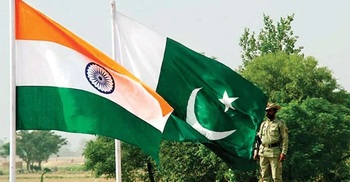Rahul Gandhi arrested on way to meet Indian rape victim's family

Indian police have detained two key leaders of the opposition Congress party, Rahul Gandhi and his sister Priyanka, after preventing them from visiting a northern village where a teenager from India’s lowest caste was allegedly gang-raped last month, reports The Guardian.
The death of the 19-year-old woman in hospital this week triggered street protests in several parts of the country.
A police officer, Manoj Dixit, said the two party leaders were detained on Thursday for violating an order banning the assembly of four or more people in the area to prevent any violence by protesters.
Police stopped their convoy on the way to the village, where the party leaders planned to meet the woman’s family. They got out of their car and started walking to the village but were blocked again by the police.
Dozens of Congress party workers scuffled with the police, who used sticks to disperse them. Some party workers were injured, and Rahul Gandhi slipped to the ground in the melee before he was taken away by police, footage on television news channels showed.
The two leaders are likely to be driven back to Delhi by police and freed later on Thursday.
The 19-year-old woman, who belonged to the Dalit community, was allegedly raped by four men on 14 September in Hathras district. Her family told local media that they found her naked, bleeding and paralysed with a split tongue and a broken spine in a field outside their home. She died on Tuesday in a hospital in Delhi.
Police said four men all from an upper caste had been arrested.
Dalits, formerly known as “untouchables” and at the bottom of India’s unforgiving Hindu caste hierarchy, are victims of thousands of attacks each year. According to rights organisations, Dalit women are particularly vulnerable to caste-based discrimination and sexual violence.
In India, rape and sexual violence have been under the spotlight since the 2012 gang-rape and killing of a 23-year-old student on a bus i Delhi. The attack sparked massive protests and inspired lawmakers to order the creation of fast-track courts dedicated to rape cases, and to stiffen penalties for those convicted of the crime.







